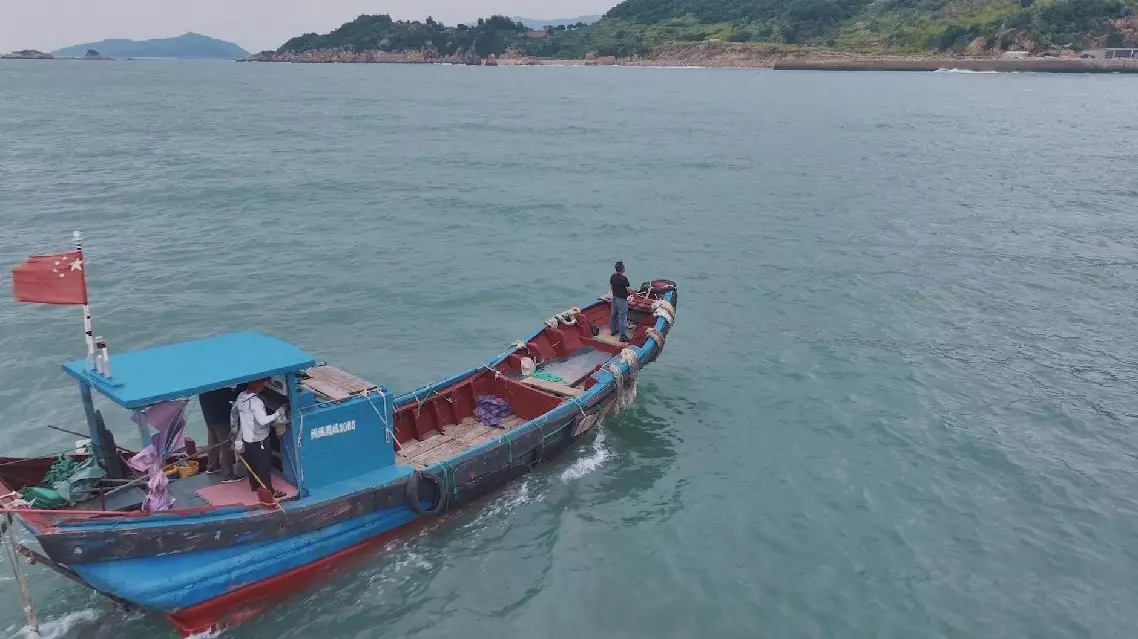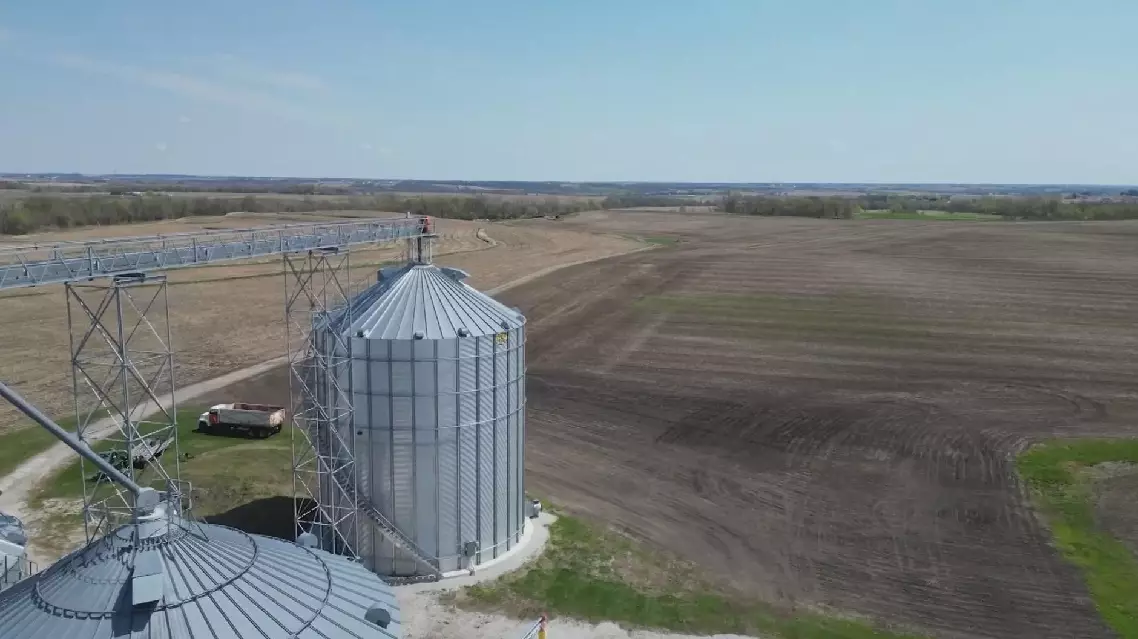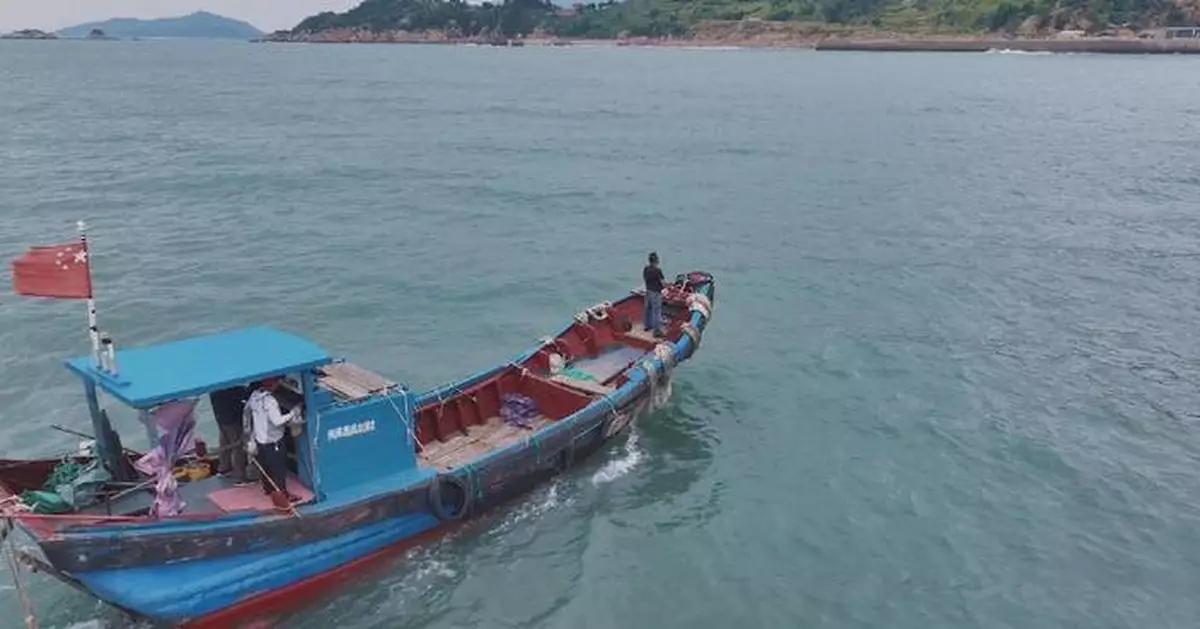China's homegrown BeiDou Navigation Satellite System (BDS) has emerged as a vital lifeline for fishermen along the country's southeastern coast, ensuring maritime safety through real-time monitoring of typhoons and vessel positions.
For Lin Xiaokeng, a veteran fisherman from Lianjiang County of east China's Fujian Province, the BDS technology has been a game-changer, marking a stark contrast to the perilous fishing days of the past.
"I graduated from a fishery high school in 1970. Since graduating, I've been working in fishery production. In the past, everything depended on the captain's judgment. Back then, we'd just go out onto the vast sea as if we were birds," said Lin.
The county's expansive 3,112-square-kilometer sea area, combined with the treacherous conditions in the Taiwan Strait, posed significant threats, with up to seven typhoons striking the region annually, along with the added challenges of the northeast monsoon and cold fronts.
Fisherman Lin Xiaokeng said during those days, the families of the fishermen were filled with worry as they spend their days at sea.
Now, BDS provides an invaluable safety net.
"Now, with the help of the BeiDou Navigation Satellite System, we'll timely make plans against typhoons based on the vessels' locations before the arrival of typhoon," said Lin Xiaoli, director of Emergency Command Center of Lianjiang Department of Ocean and Fisheries.
The platform displays all registered fishing vessels and township vessels on a single map, providing a comprehensive overview of maritime activity, according to the director.
"There's a lot of equipment installed on the ships now, such as satellite and anti-collision positioning devices as well as ocean broadband. At any time, the equipment can observe if the pilot is on duty or if he's dozing off. So, for fishermen there's now a better guarantee of safety at sea. Safety makes everything easier," said fishermen Lin Xiaokeng.
Lianjiang County boasts over 500 varieties of seafood and is renowned for abalone and kelp production. In recent years, approximately 135 fishing boats have been upgraded, supported by over 300 million yuan (about 41 million U.S. dollars) in government subsidies. These improvements have significantly transformed the outdated and dilapidated fleet, ensuring better conditions for local fishermen.
The investment, coupled with the enhanced safety provided by BDS, is contributing to a more prosperous and sustainable future for the local fishing industry.

China's BeiDou technology helps keep fishermen safe
Mounting uncertainty over the U.S. tariff policies under President Donald Trump's administration is fueling distress among the farmers of Iowa state, a U.S. state long regarded as the "granary and breadbasket of America," and disrupting the agricultural sector, particularly its soybean industry.
Iowa's agricultural sector is heavily export-dependent, and the U.S. abuse of tariffs has left the state's farmers uncertain about how to plan for the future amid sudden changes in policy direction.
"It has been really difficult, especially with the stress on the market since the announcement of the tariffs. Any unsold soybeans that we have now will sell at a loss. It's what does the next three years look like in this very uncertain environment with different tariff ideas every day, every week. Like how do we plan as a business for that," said farmer Corey Goodhue.
The uncertainty has pushed some farmers to shift to alternative crops like corn, which currently faces fewer trade obstacles. But the switch comes at a cost. Prices for fuel, fertilizer, and other inputs have surged under the broader tariff regime.
Grant Kimberley, a large-scale farm operator and senior director of market development for the Iowa Soybean Association, said costs are rising across the board.
"We don't ever like to see food and agriculture used as a weapon in a trade disagreement because it doesn’t do either country any good," he said.
Data from agricultural equipment manufacturers showed the cost of machinery in the United States rose 18 percent year on year in spring 2025.
The ripple effects of falling farm income are already being felt in the wider community.
"So I think the tariffs have a trickle-down effect. As for the commodity, if the farmers don't make money, then no one else benefits. John Deere ( the world's leading tractor maker) lays off employees, and this situation just works its way through the community. So small businesses are really struggling with it," said Goodhue.
Policy analysts have warned that the longer-term economic damage could extend well beyond the farm belt.
"At this point of time, it has not yet begun to bite because people have already had inventories of these goods at the lower tariff rates. But soon, at some point of time, and it will be soon that the impact will be felt at grocery store counters. We will see areas where the U.S. was very competitive losing its competitiveness, and with other suppliers taking their position," said Sourabh Gupta, senior Asia-Pacific policy specialist at the Institute for China-America Studies.

US tariff policy turmoil threatens Iowa's farmers, disrupting exports





















































